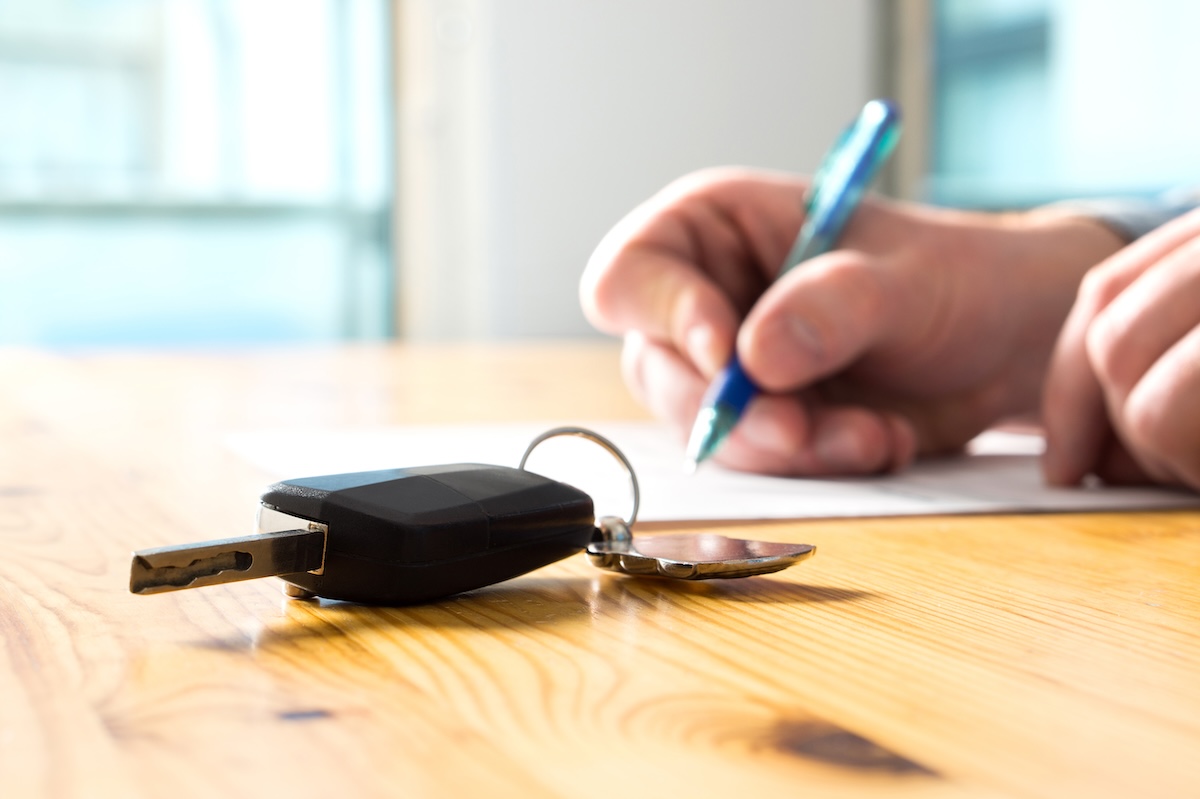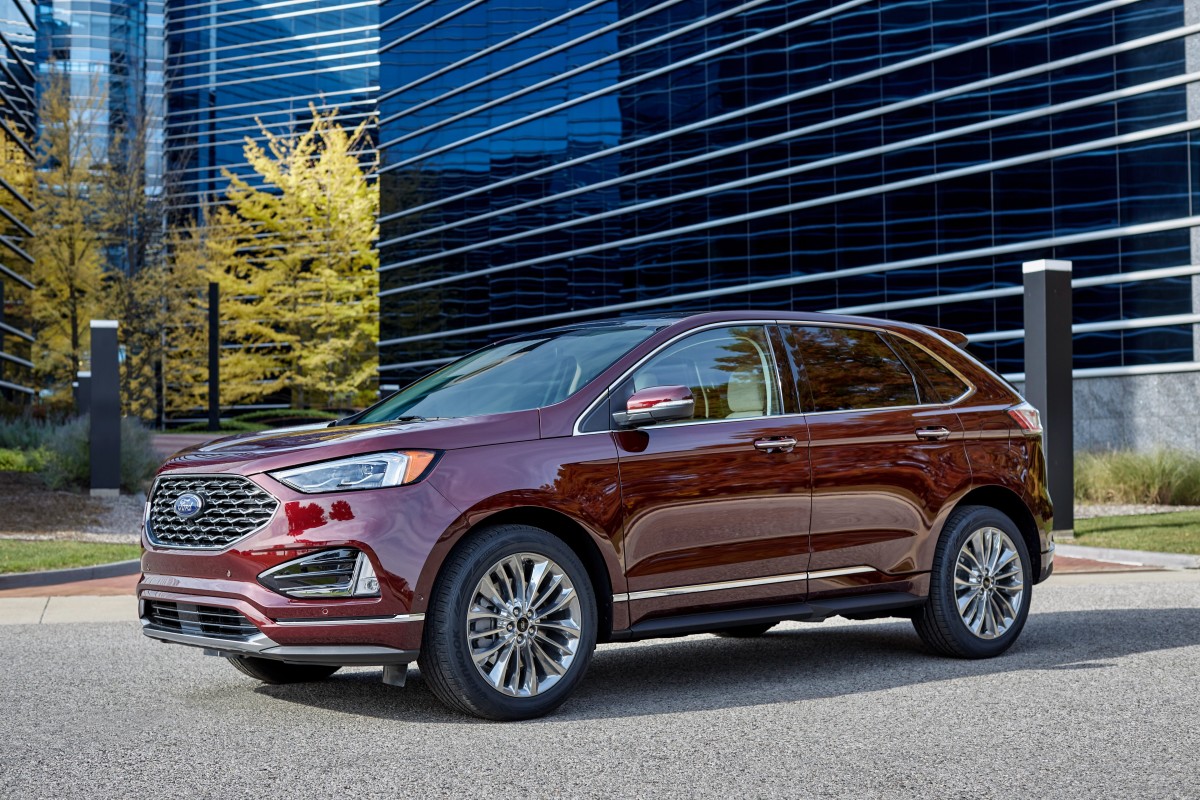The car is up for sale, and the phone is ringing, but so far the guy who seems to want it most lives in a different state. Is selling a car privately to an out-of-state buyer a problem? The short answer is "No," but you should know some things that will help protect you and the investment you’re about to send down the road.
A Guide to Selling Your Car Out of State
Test Drive and Inspection

Assuming you’ve decided to sell your car to an out-of-state buyer, and you and the potential buyer are both in the same ballpark about purchase price, they may want to take the car for a test drive when they come to pick up the car. Make sure they have a valid driver’s license, then take a picture of it and send it to a friend or family member in case anything unfortunate should happen. You should probably ride with them, too, just to make sure they don't hit the open road without completing the transaction.
The prospective buyer may also want to get the car inspected at a shop before buying it. Appointments and arrangements for this kind of thing should be made in advance. If the shopper wants to have a vehicle delivered, rather than coming to pick it up in person, they can arrange a remote inspection, where a mechanic will come look at the car on their behalf.
Payment
If all goes well, it's time to talk money. Specifically, how do you get paid?
Will you take a personal check? Umm, no. Sorry. Unless you know the person well, know where they live, know where they work, and know their family, you should not take a personal check for a large transaction like a used car sale to a private party. There are too many ways for this to head south in a hurry: Maybe the check is no good, maybe the car buyer stops payment after writing it, maybe the check is stolen. Any of these cases would create a lot of hassle for you, and you might never see the money you're owed. In short, no, no, no to personal checks. Just say no.
Cash is always best. Don't be afraid to ask for cash. If your negotiation ended at an odd amount, you are not expected to make change. Assuming banks are open, the buyer can go to a bank to withdraw cash or get the next best thing: a cashier's check made out to you. A money order made out to you will also work. Alternatively, you and the buyer can consider using a service like Escrow.com to handle the financial dealings.
Small businesses holding a merchant account with a credit-card company or a mobile payment company like Square can technically accept credit cards. But because these sellers will have to pay a percentage of the transaction to the credit-card company or Square, the more expensive the car you're selling, the less appealing this option becomes.
No matter the payment method, it's important to note that you as the seller do not need to worry about sales tax. That's the buyer's responsibility, and they will pay it when they register the car.
Required Paperwork

Vehicle sales are regulated by individual states, and although rules about transactions and title transfers are similar, each state has its own peculiarities. Do your homework to see what you as the seller are responsible for in terms of vehicle registration, certificate of title, a bill of sale, insurance, and taxes before your ex-ride drives down the highway.
To sell a vehicle anywhere and to anybody, you need to have the vehicle title, meaning you own it free and clear of any liens. If you financed your car, the lien holder, whoever is servicing the loan, holds the title until it's fully paid. Once the car is paid off, the finance company should send you the car title with your name as the owner and no liens attached—it should say that near the bottom of the form. Things get a bit more complicated if you still owe money on your loan, but it's still possible to sell the car. You will just need to involve the lender.
When you sell the vehicle, there's a box for transfer of ownership—usually on the back of the title—that you as the seller fill out and sign. It will list the date, sales amount, and odometer reading. Read carefully to see if there are any other instructions about selling an out-of-state vehicle, and follow them.
In addition to the title, or "pink slip," you may have to provide a Bill of Sale. These are usually not mandatory, but it doesn't hurt to have a document with all the information on one page, and you can create your own bill of sale. Write a title up at the top like, "Bill of Sale." List the make, model, year, and vehicle identification number (VIN) of the car you're selling. The VIN will be on the title, but you can also find it on your insurance information and inside the driver's side door. List the sales price and mileage on the odometer. Make a subheading for "Buyer," and have the buyer put in their name and address. Put a date of sale on the bottom, add your signature, have the buyer do the same, and you're done—ownership of the vehicle has been transferred.
Registration
Once the car is sold, the buyer will need to register the vehicle in their home state—which will issue a new title to the new owner. When you buy a car at the dealership, this is generally handled on your behalf. That’s not the case with private sales. You might also be responsible for notifying your state's department of motor vehicles (DMV) that you no longer own the vehicle. Check with your local DMV to see what (if anything) you need to do. Some states require inspections before a vehicle can be registered, but this is the buyer's responsibility, not yours.
In order for the buyer to drive the car home, it needs to have tags. Since the car they are buying hasn't been registered or titled in their state, they will need to get temporary tags and a temporary registration at their local DMV. Some states also issue "transfer tags" that would allow the buyer to pick up transfer tags in the state they are buying the car in and drive it home. If the state requires proof of ownership before issuing any kind of tags and registration, the buyer will need to complete the sale with you, bring all the paperwork to the DMV, re-title the vehicle, acquire the new registration and plates, and then go back to get the car with the completed paperwork.
License Plates
Your license plates are attached to your name and registration, so they need to get removed when you sell the vehicle—especially if it's leaving the state. Your state may want your old tags back, or you can nail them to the garage wall as an homage to your old car. Check the state DMV website to find out what to do with plates for a vehicle you no longer own.
Insurance

Don’t forget to cancel the insurance on the car you just sold. If you're buying a new car, you can probably just give the insurance company the new vehicle's VIN, make, model, and year, and they will adjust your policy.
Selling a car to an out-of-state buyer is not much different than selling to somebody down the street. With a little preparation and a trip to the DMV, you can sell your old car and get on your way to a new one.




